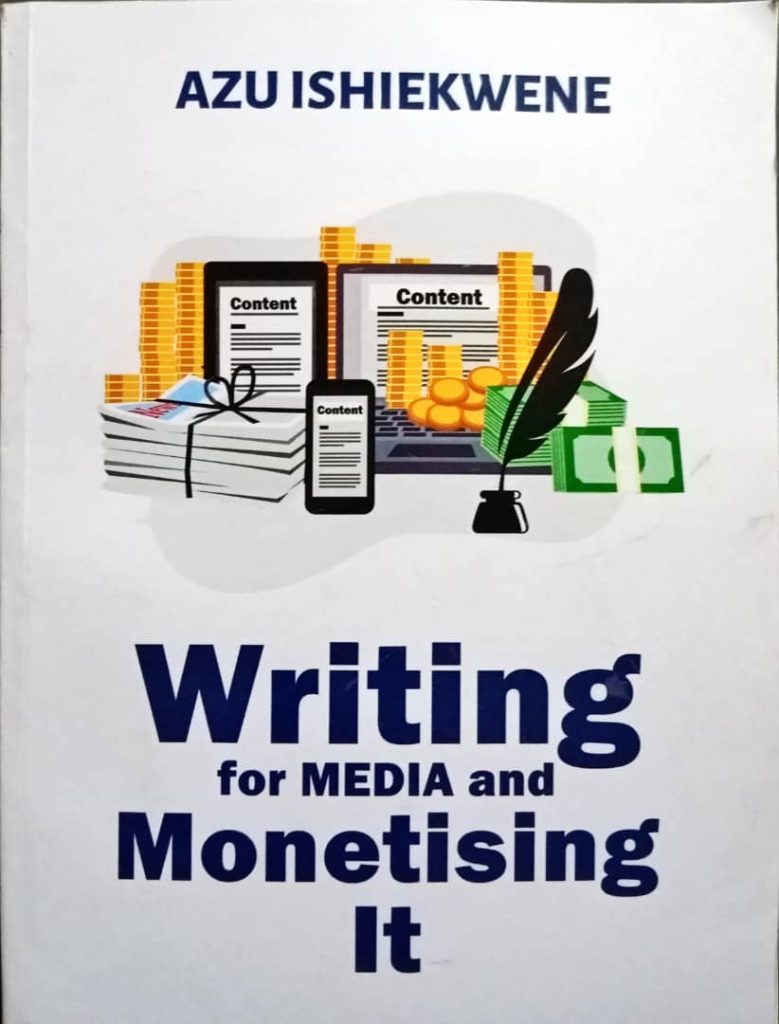In December last year on my last day of work before Christmas I sat alone in my office in Abuja reflecting on my life’s journey. I thought about my years in the media especially the few years since one ventured into entrepreneurship. I remembered my post on Facebook in June 2015 announcing my resignation as Managing Editor at Leadership Newspaper and the planned unveiling the following month of Sundiata Post as an online newspaper. I thought about the people whose paths I have crossed in the media. I reflected on the statement made by Colonel Abubakar Dangiwa Umar (Rtd) when as Military Governor of Kaduna State in the late 1980s he said he could follow then Military President Ibrahim Babangida to war blindfolded. That was a deep statement of loyalty. Never mind that Col. Umar recanted after the annulment of the 12 June 1993 election in which the late MKO Abiola won. I thought about the people that have made so much impact on my life and wondered if there was any of them I could follow to war blindfolded.
Mr. Azubuike Ishiekwene, known to many of us his admirers as Azu, came to my mind. He is a man that has had profound impact on the career of many media practitioners that have crossed his path and I have been a major beneficiary of his generosity. In Lagos where I was for a number of years features editor at ThisDay, Azu was setting the pace at The PUNCH, a place he rose through the ranks to become editor and later, editorial director.
Our paths crossed fully in 2013 in Abuja when he signed me on as Managing Editor at Leadership Newspaper, where he was Group Managing Director. No one would would want to miss Management meeting on Mondays, not necessarily because of sanction but because of Azu’s leadership style. I always left the Monday Management meeting at Leadership enriched with deep insight into newspaper management and it paid off for me when Sundiata Post was set up.

When Sundiata Post was unveiled on 7 July 2015, in Abuja, Azu, ever supportive, was the moderator at the panel discussion on ‘New Media and the Future of Newspaper in Nigeria.’ The panel discussed the paper delivered by Malam Mohammed Haruna, then a syndicated columnist. Malam Haruna is currently a national commissioner at the Independent National Electoral Commission (INEC).
But Azu is better known for his writing. A hugely respected syndicated columnist, week after week he writes about Nigeria, it’s history, state of the union and it’s place under the sun.
His commitment to excellence is well known to anyone who has worked with him. But I never knew that he has also been concerned about how journalists and content producers can earn money and live well from the work they do. This has been of great concern to many media practitioners especially in the age of Internet when content is available almost free of charge or even stolen.
When I first got a hint about his book, Writing for Media and Monetising It was in his column a few weeks ago when he told his readers about his visit to the publisher of Vanguard Newspapers, Sam Amuka in Lagos.
Getting paid for content is an issue media practitioners have been grappling with. Online publishers have been most hit by this as they have no physical copies to sell. In the craze to push for traffic they put up all kinds of content without getting reward for it. Public relations consultants send press releases and articles for publication with no plan to pay platform owners for the use of these stories.
From strategy meetings to publishers’ conferences across Nigeria how to earn money from work done is an issue that won’t go away.
It is in this regard that this book is an idea whose time has come. No other person is suited to write this book than Azu, media management guru, content producer and columnist that has made his mark nationally and internationally.
At a time when the media landscape has been hit by financial crisis what will the media owner do to remain relevant and financially stable. Put another way, in these turbulent times what will the media entrepreneur do to keep head above water level as we say in Nigeria? When I picked a copy of Azu’s book these were the thoughts that flashed through my mind.
True, Azu didn’t set out write a book for entrepreneurs. He is clear about the purpose of the book. He could no longer ignore suggestions from admirers to share his experience in a permanent form having been writing for more than 35 years. His words: “I thought perhaps it might be useful to combine my speaking experiences with decades of reporting, editing and writing a weekly column now enriched in both audio and visual formats, to serve the needs of a younger generation of content providers, especially students and those in the earlier stages of their career, trying to find their way and also trying to make an honest living while doing so.”
Without having that as his primary purpose Azu has, however, written a handbook for media entrepreneurs especially online publishers. I have, therefore, elected to look at the book through the prism of online media entrepreneurship. The Nigerian media landscape is inundated with several online newspapers most of them in the general news category financially challenged and struggling to carve a niche in a way that can guarantee their continued operations.
The critical issue in online publishing is content. It is what makes the difference between one platform and another. Other issues like search engine optimisation, digital marketing, website friendliness and social media presence are also very vital for the success and sustainability of an online media business. But the factor that binds all these and make a platform stand out is content. That is why in the online business environment we agree with Bill Gates that content is king.
For an online publisher or one who is planning to go into online publishing the relevant chapters are 2, 3, 4, 7, 9, 13 and 14. In these chapters the author gives prescriptions that if followed religiously can lead to tremendous success. Apart from content, here the author discusses choice of subject, style, audience, staying out of trouble, etc.
He mentions his lecturer, Dr Olatunji Dare, who, for sometime, was Chairman of the Editorial Board of The Guardian. Dr Dare, Azu writes, had written an article in the mid 1980s in The Guardian on stalactites and stalagmites and people were wondering what he meant. Azu explains that the words mean formations that grow inside a cave; the first from the top down, and the second from the floor up.
He says he remembers that the article generated controversy. “While some readers welcomed it as a refreshing literary exploration of the wonders of nature”, Azu recalls “not a few were upset that Dare ignored what they thought were very important social issues of the time for cave tourism”.
For online publishers who have not been paying attention to subject this will blow their minds or change their perspective. Subjects that are rare give attention to a platform. While political and social issues may become stale over time, content on subjects that are rare is a good way to make Google algorithm smile on a platform and it will have a positive impact on the news website’s domain authority. Imagine if online publishing was in vogue at the time The Guardian published Dr. Dare’s article. It would have guaranteed the platform unique visitors.
Style is important in online publishing. For the entrepreneur who desires that his platform gains traction, style of presenting stories or content is important. Azu says it is important for the writer to create their own style. Stretched further, it is important for an online media platform to create its own style.
In the traditional media, every newspaper has what is called a house style normally compiled into a stylebook given to editorial staff as they are employed in the organisation. The Guardian had its style when it started. Everyone’s title was Mr. It didn’t matter whether the person was a Chief, High Chief, Otunba, Mazi, Dr or Prpfessor. When their correspondents, Nduka Irabor and Tunde Thompson, were to be jailed under then Head of State Muhammadu Buhari’s Decree 4 of 1984 and the legendary lawyer, the late Chief FRA Williams was to defend them in court there was a dilemma. Frederick Rotimi Alade Williams, the most decorated legal luminary of his era, would not accept being referred to or identified as simply ‘Mister’.
Champion newspaper too had its own house style. Champion insisted that Ota in Ogun State had to be spelt with one ‘’t’ as Ota even when Otta with double ‘’tt’ was generally accepted as correct spelling.
Most newspapers generally in their rstylebooks emphasise short headlines, short sentences devoid of verbosity, short paragraphs, balancing of stories in addition to more specific details peculiar to each stable.
However, in Writing for the Media and Monetising It, Azu expands the scope as he delves into the distinction between style and substance. His takes the reader through the efforts he made to create his own style from a long list of writers he admired from acclaimed journalists like Dele Giwa, Ray Ekpu and Yakubu Mohammed to literary writers like Chinua Achebe and Mark Twain before he settled on his own unique style.
In online publishing, a platform can create its own style and I know some online news platforms have their style of presenting news or commentaries. Knowing one’s audience is as important for the writer as it is for a news platform. Even in the traditional media identifying one’s audience is important. Some publications target the mass market; some, the political class business elite. Some others go for high society while others are for gossip, etc.
Azu deals with the subject of knowing one’s audience in Chapter 4. He writes: “Not everyone is interested in what you have to say. For those who follow you, however, you have to find valuable ways of connecting with them in a world of many, often noisy and confusing voices.”
The author gives tips on how a writer can build their audience and earn money from content provided for that audience.
In online publishing, a platform can adapt the tips given by the author, carve a niche, focus on that niche and earn money from that niche.
Not a few writers and publishing outlets have been found on the wrong side of the law on account of what they wrote or published. In Chapter 7 Azu looks at the debate between free speech and responsible speech. This chapter is very important as the author examines the different laws covering free speech and press freedom like the Official Secrets Act, Seditious Offences Act, Cybercrime Act, Copyright Act and the Freedom of Information Act.
For any content provider, whether as a writer or a media entrepreneur, to earn from the work they do they have to find a way to navigate the minefield of constricting or militating laws. But the author gives tips that can help the content provider. These include Truth, Qualified privilege, Fair comment and Fair use. The book discuses these in detail.
The media has not been spared the invasion of Artificial Intelligence. This is a disruptive technology that is changing the media landscape and Azu deals with this subject admirably.
The author discusses content in detail. It has been said that content is king. It is what makes the difference between success and failure. Even when there is success, content determines, to a large extent, the degree of success whether for a writer as an individual or a media entrepreneur.

Azu looks at four case studies as success stories namely Linda Ikeji, the blogger; Abdulsalam Idris, who has recorded tremendous success sharing content on X (now Twitter); Adeola Fayehun, producer of ‘Keeping It Real with Adeola’, and Tunde Olaoluwa Adekunle, blogger, comedian, entertainer and musician.
Writing for Media and Monetising It is easy to read. I hardly put it down when I started reading it. The strength of the book lies in the practical examples the author uses to explain the issues discussed. He tells the reader his own experiences, the challenges he encountered along the way and the steps he took to overcome those challenges.
The sentences and paragraphs are short. There are exercises a reader can do to engage or explore each subject further. In addition, each chapter has boxes, tips and reading lists for easy reading.
Whether one is a mass communication student, a journalist, a journalism teacher, a media entrepreneur or just a New Media enthusiast there is something in the book for everyone.
I looked for errors of spelling or poor editing and I could not see any. Instead the graphic design is top notch and the font used is big enough for anyone with a challenge reading tiny pointsize. All these add to make the book reader friendly.
On Wednesday, 26 June 2024, Azu will roll out drums to present Writing for Media and Monetising It to the Nigerian and global public at the Musa Yar’Adua Centre, Abuja.
•Max Amuchie, Founder/CEO of Sundiata Post Media Ltd, is a Member, Nigerian Guild of Editors and the Guild of Corporate Online Publishers. He is the Immediate Past President of the Rotary Club of Abuja CBD and outgoing Vice President, Public Relations, Unity Toastmasters Club, Abuja.




